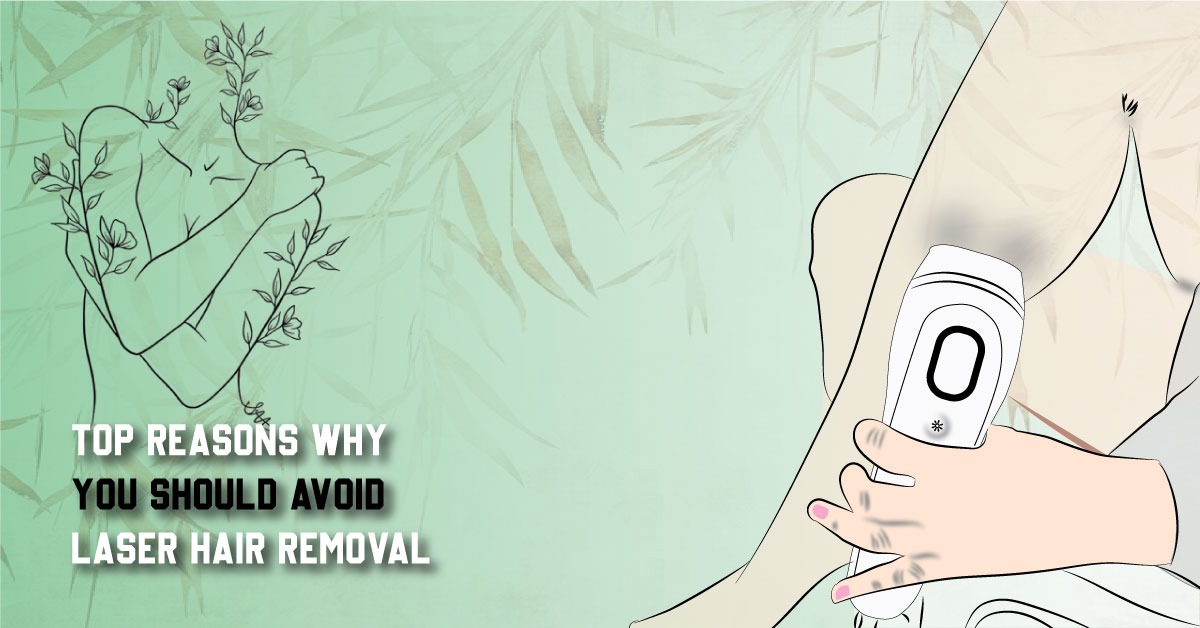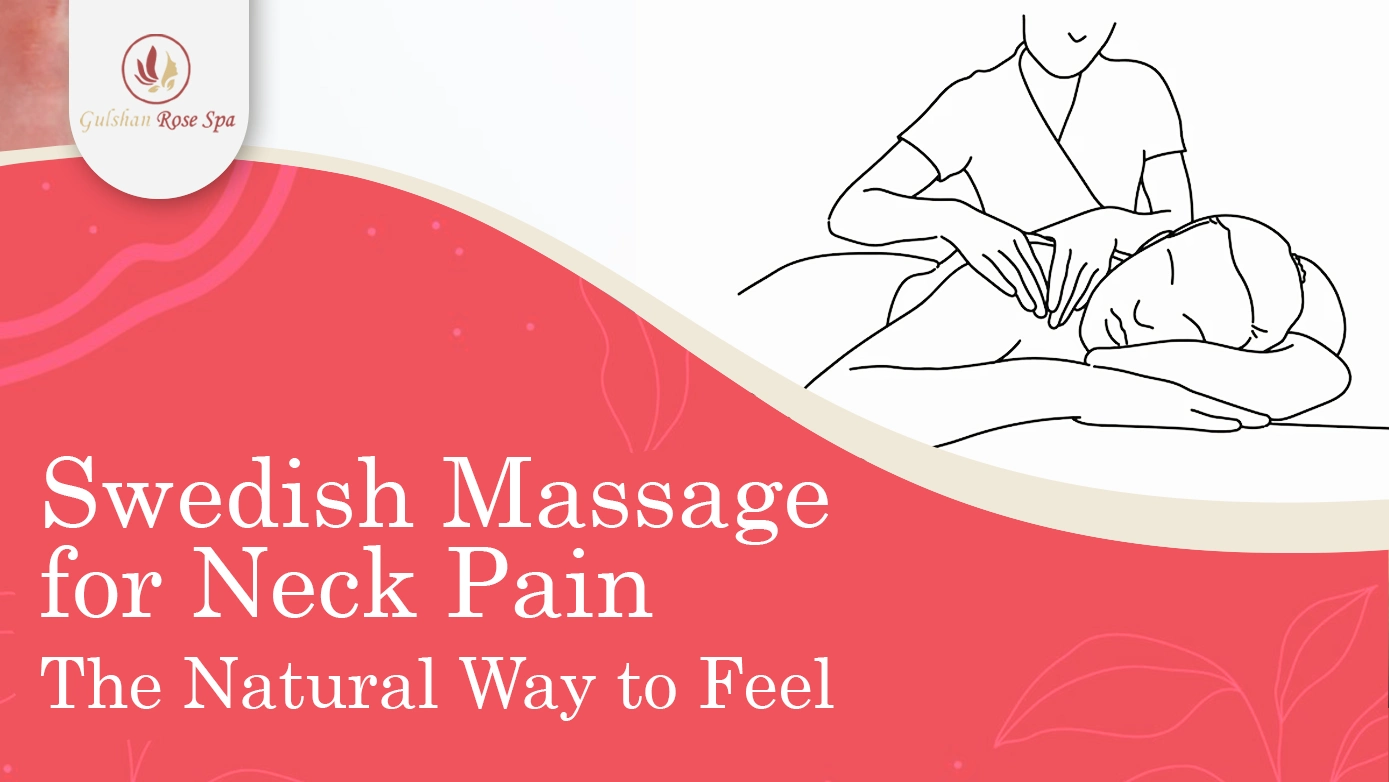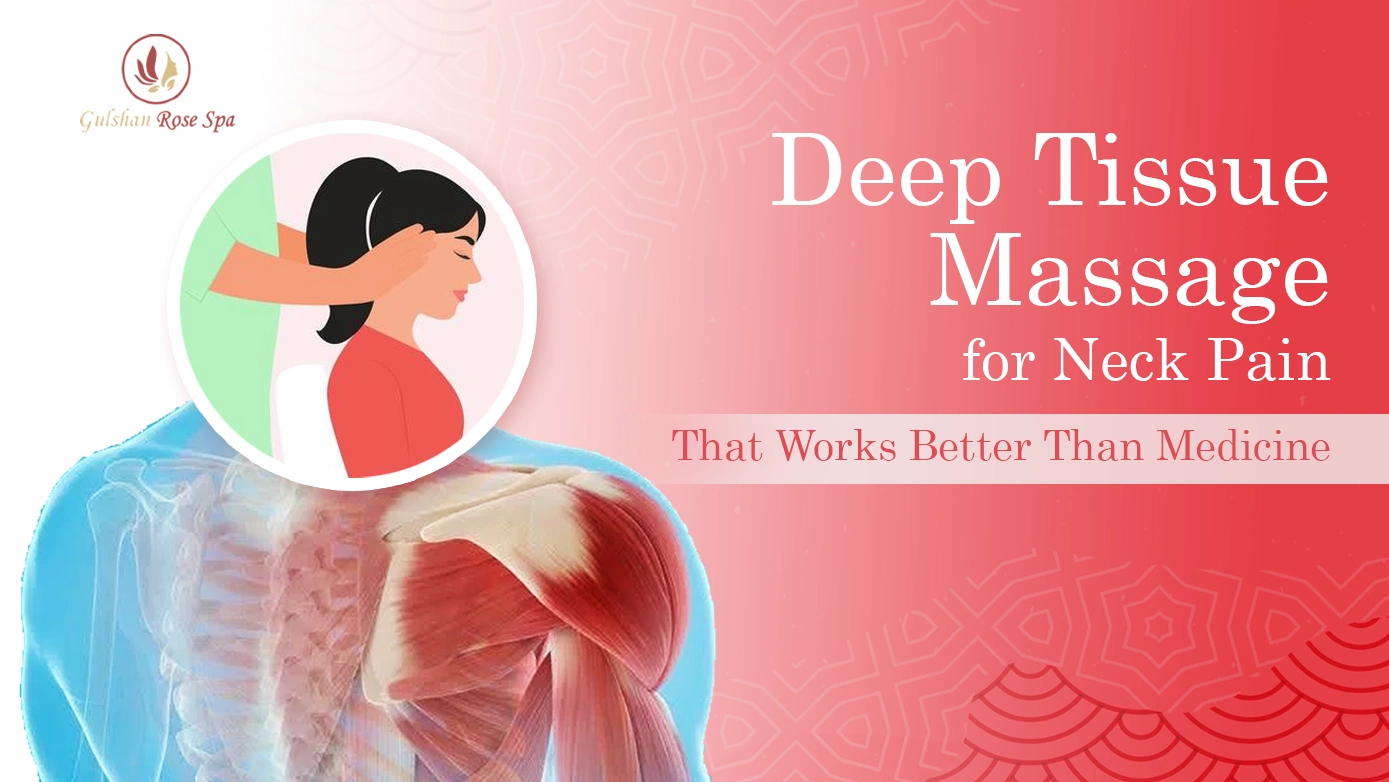From waxing to plucking, hair removal can be a painful process. This is why many individuals get laser hair removal technique, which is a more convenient and effective method for achieving smooth, hair-free skin.
There are so many ways that can help to remove unexpected hair but only laser hair reduction treatment promises a long-lasting result. However, this technique does not only provide benefits but also leads to many skin problems and side effects. From potential side effects and high costs to limitations based on skin and hair types, it is important to know the hidden dangers of laser hair removal methods.
In this article, we will discuss is laser hair removal safe and effective, as well as why you should avoid laser hair removal. We also look at how laser hair treatments are harmful to pregnant women. Understanding the reasons behind your avoiding this solution of unwanted hair removal will help you make the right decision and choose the good candidate!
What is laser hair removal?
Typically, laser hair epilation is used to remove unwanted hair growth from various parts of the body, including the face, underarms, back, legs, and any other areas. It does not require any skin cuts. If you’re not satisfied with tweezing, shaving, or waxing to get rid of hair, it is a worthy option to consider.
When applying this hair removal technique to a targeted area, a laser can be used to remove hair that is not needed. By converting light energy into heat, the laser damages the tube-shaped sacs within the skin, known as hair follicles, which are responsible for producing hair. Also, it helps to inhibit or delay future hair increase.
The Benefits of Laser Hair Removal
Scientific research has proven that laser hair removal offers significant benefits, particularly when compared to other hair removal techniques. Here is a list of some of the most significant benefits you can achieve, such as:
-
Long-term solution
The technique destroys hair roots, preventing them from growing back quickly. It enables you to bid farewell to unforeseen hair growth.
-
Low maintenance
It is a wise investment for men and women who are looking for a short-term (1-2 years) solution for significantly reduce hair.
-
Time-saving
The entire process, like skin, upper lip, underarms, and bikini, takes several minutes. It will only take you a small portion of your day to address larger areas of your body.
-
Less painful
Compared to other methods, laser hair removal is a less painful option. It features a unique cooling system that ensures optimal comfort throughout the treatment.
-
No more waiting for hair growth
You don’t need to expose your hair to receive laser therapy. Most clinics and spas ask you to shave before a session to prevent scorching.
Why should you avoid laser hair removal?
Despite the numerous benefits of laser hair removal, it carries many potential risks and side effects. So before starting your first hair removal sessions, you should be aware of why laser hair removal is not for you.
Laser Hair Removal Side Effects
There are numerous potential side effects from laser hair therapy. However, some patients experience minor side effects, while others experience long-lasting effects. Below we have described some common side effects of laser hair removal treatment you should need to consider:
Redness & Irritation
Removing hair with laser treatment may cause damage to the follicles of the target area. As a result, many people are experiencing irritation, redness and swelling. After a session of laser therapy, most people are facing these common effects.
Crusting
Avoid laser hair removal, as it can lead to skin crusting. There is a wide variety of people who may experience skin crusting in the treated zone where they are applying this hair removal technique. While it is typically a minor concern, it can cause discomfort.
Changes skin pigment
In some cases, people may notice changes in their skin colour, such as slightly darker or lighter skin tones. For example, individuals with dark skin tones may experience lighter pigmentation changes. Besides, individuals with light skin tones tend to have darker skin.
Eye Injury
During the hair removal process, lasers use more power, which may cause serious eye injuries. It especially happens when any unprofessional practitioner is working on the face without using the safety of laser hair removal. However, while practitioners use protective eye equipment to help reduce injuries, it does not eliminate the risk of eye injury.
Burns & Blisters
You should avoid laser hair removal because high-heat lasers are used in this treatment. Improper application of the treatment increases the risk of burns and blisters in the affected area, especially for people with dark skin tones.
Scars
Although it is not a typical side effect, it can occur, especially if the practitioner makes a mistake. It also appears that people do not properly care for the treated area after a session.
Treatment costs are higher
Why you should avoid laser hair removal? One significant cause for the higher treatment cost. To see long-lasting results, hair removal with light-based treatment usually requires multiple sessions (6 to 8). So the cost ranges are higher than the other methods of hair removal, such as waxing, clipping, and more.
Not suitable for all skin types
Your skin type plays a significant role when choosing a hair removal treatment. In a medical history, it is revealed that not all skin types can benefit from this hair reduction method. Therefore, if you use the wrong laser for a specific skin type, there is a potential risk of adverse effects. Additionally, if you have a darker skin tone and face a higher risk of side effects like burns, you should avoid laser hair removal. Because in this case lasers also target the melanin in the skin, it makes the procedure less effective and unsafe for individuals.
Pain
Though it is often a painless process, most individuals notice feeling pain during the treatment. However, people often describe the discomfort as a rubber band snapping against the skin or a sharp, stinging sensation.
Does at-home laser hair removal work?
You may be wondering, “Does laser hair removal at home work?” The short answer is yes. However, you won’t achieve a professional-quality result. Also, there is a chance to experience many typical side effects. A home laser hair device is ineffective and can emit only a limited amount of light due to its ineffectiveness and legal limitations.
Moreover, a low-energy diode laser powers most of the devices, while intense pulse lights power the others. Furthermore, these devices are not integrated into any colling technologies.
Why You Should Avoid Laser Hair Removal While Pregnant?
The short answer is that due to the lack of standard guidelines and research, you should avoid laser hair removal during pregnancy to prevent taking unnecessary health risks.
Currently, there are no long-term studies that found the safety of laser hair treatment during pregnancy. To provide a clear understanding, below we are providing some reasons why you should avoid laser hair removal while pregnant:
Lasers
One of the main reasons why you reconsider laser hair removal while pregnant is that powerful lasers emit radiation. Misuse of a powerful laser can put the developing fetus at risk, particularly during the first trimester when the organs are still developing. Additionally, high doses of radiation can cause miscarriages, fetal malformations, and preterm births.
Hyperpigmentation
Still, there are other potential risks of lasers, including burned skin and hyperpigmentation. Pregnant women are more susceptible to these risks. Skin darkening and melasma are usually more likely to occur when hormonal changes are present.
Skin sensitivity
After a session of laser hair treatment, skin sensitivity is a common risk that is highly apparent in pregnant women’s skin. Because pregnancy has the potential to enhance the blood flow throughout your body.
In addition, the skin on a woman’s abdomen and breasts also stretches out during pregnancy. When you undergo this light-based hair removal treatment, your skin becomes tender, which can cause discomfort.
Is laser hair removal safe for teenagers?
In short, when a well-trained professional performs laser hair reduction techniques, it is typically safe for teenagers.
However, when you are starting to consider laser hair therapy for teenagers, certain risks are associated with the treatment you should be concerned about. Typical laser hair removal side effects include skin burns and irritation.
The laser’s intensity can occasionally induce redness, temporary discomfort, and swelling in the area where it is applied. Future hair growth patterns are another reason to avoid laser hair removal for teens.
Although it can significantly reduce unwanted hair in targeted areas, it is not guaranteed to be permanent. Some individuals may re-grow hair over time, although usually finer and lighter in colour.
In summary, while ensuring teenagers prioritize safety above all else, understanding these possible risks of laser depilation therapies can help teenagers make informed decisions about their bodies.
Final Verdict
Why should you avoid laser hair removal? Hopefully, you now clearly understand the reasons! While laser treatment can be a convenient way to reduce unwanted hair, it comes with numerous side effects and potential risks. From possible side effects to high costs and ineffectiveness on certain skin and hair types, there are many reasons to think twice before considering starting the first session.
Therefore, always consult with a dermatologist before making your decision to ensure you choose the hair removal option that is right for you.
Frequently Asked Questions
Is laser hair removal safe?
Yes, laser hair removal is a safe option, but it carries potential risks and side effects, such as burn scars or permanent skin discolouration. Additionally, most of the time, side effects and risks vary depending on the individual and the quality of the treatment.
Can I use moisturizer after laser hair removal?
Yes, you can. Moisturizing your skin is essential because it may be a little dry and flaky after a session of removal of hair. However, to keep your skin hydrated, use a gentle, fragrance-free moisturizer multiple times a day. Additionally, following a laser hair treatment, individuals may experience side effects such as skin dryness, irritation, warmth, and redness. In this case, moisturizers can help to deal with this discomfort.
Why does laser hair removal hurt?
The whole process feels uncomfortable because of the heat the laser generates when it targets the hair root. It also causes a stinging or burning sensation that may be more intense in a treated area or individuals with sensitive skin. Further, not all the people experience the pain the same way. Therefore, if someone tells you that the pain “doesn’t hurt at all” or “hurts tremendously,” you should be cautious. Additionally, the intensity of pain and discomfort varies depending on factors like pain tolerance and the types of laser used.
Does laser hair removal last permanently?
No. Due to the effects of hormones, laser hair removal treatment is not permanent on both male and female faces. Most people do not see any hair for months or years following a laser treatment session. Typically, companies sell additional treatments as a package of several sessions, as each session yields only 15% to 30% results.
Does hair grow thicker after laser hair removal?
Not everyone experiences it. However, some report that during laser hair treatments, they notice hair appearing thicker or darker. It occurs when the hair sheds from the root after treatment. Therefore, though it is not a one-time treatment, you will need multiple sessions to see the result.
How does diode laser hair removal work?
Typically, diode laser hair removal works on the principle of selective photothermal myolysis, which is an optical technique that points heat at the target hair follicles without damaging the surrounding tissue. A portable gadget releases rapid pulses of energy throughout the entire procedure. The laser then penetrates deeply into the skin to directly target the hair follicles. To stop the follicle from growing further, the laser heats it to a temperature at which it is incapable of surviving and permanently disables it.





